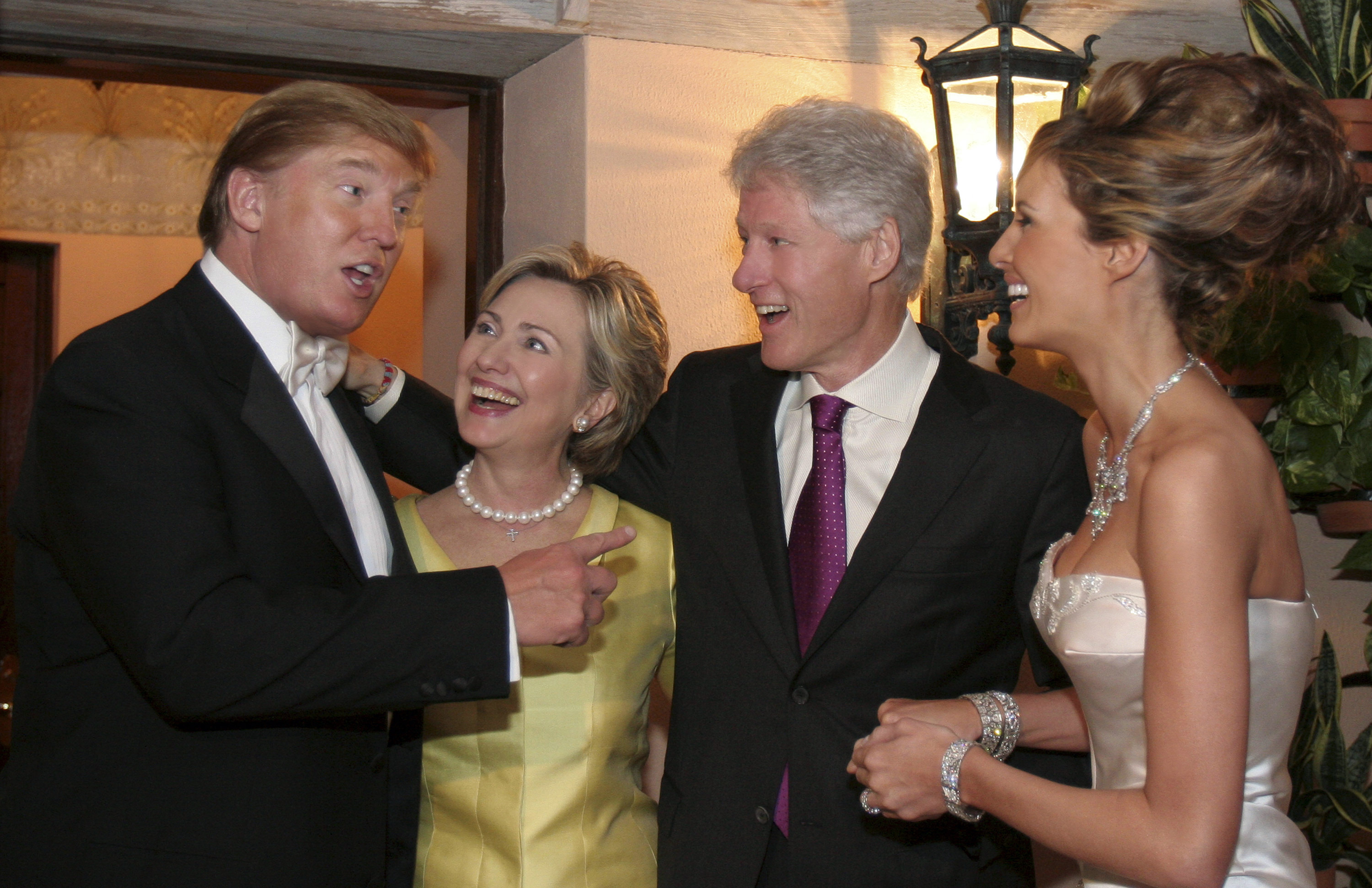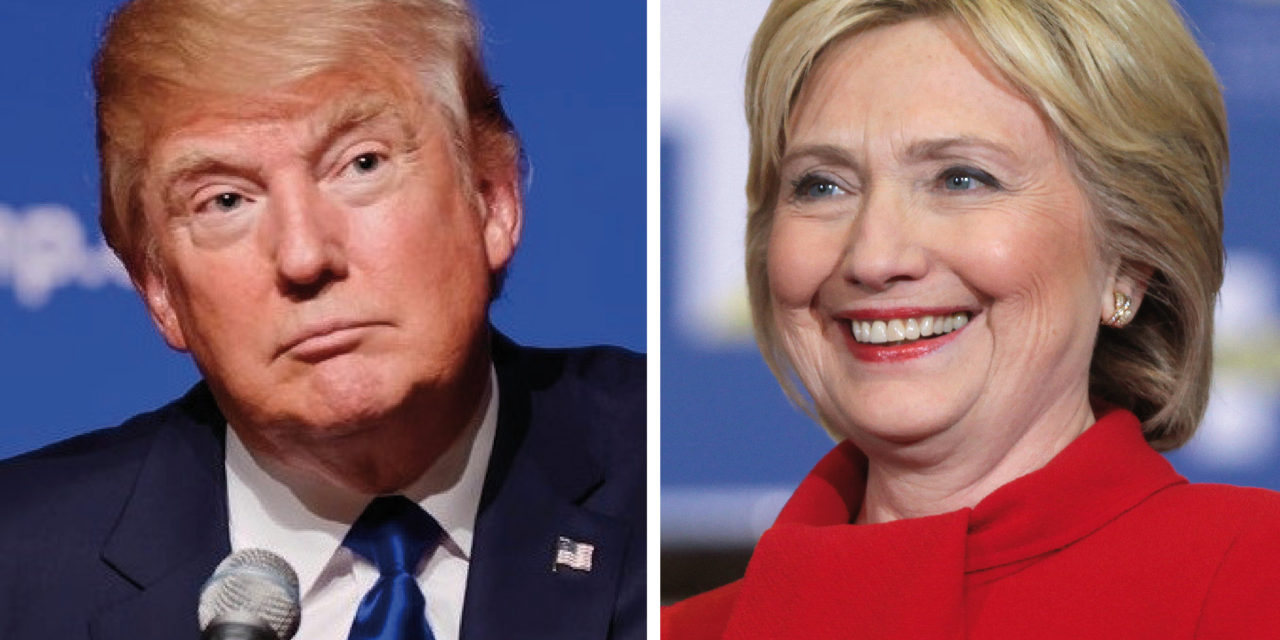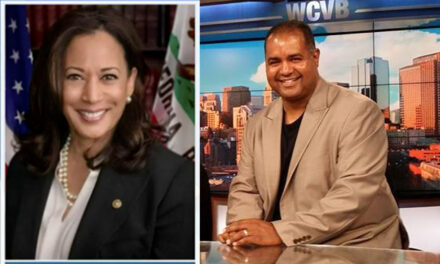The earliest election I remember is Dukakis/Bush of 1988. I had no idea who was who, or why Willie Horton was important, but there were pictures of random Cape Verdeans in my house (I’m guessing this is common in Creolo households) and Michael Dukakis was in one of them so I felt sad when he lost. After that I didn’t pay much attention to political theater but that all changed during the US Presidential election of 2000.
Democratic nominee Al Gore had won the popular vote, but eventually lost the general election to republican nominee – George W. Bush, in a contested vote recount in Florida. Political panic ensued that bordered on the hysterical.
‘’Gore has won Florida!”
‘’No! Bush has won Florida!’’
The American populace turned into the embodiment of Oprah Winfrey handing out gifts to her audience.
“You get a recount! And you get a recount! We all get a recount!’’
For 36 days the American public and indeed the world at large awaited the results, which carried with them far greater implications than simply who won the election. Chief among them was; how impartial could the Florida recount be if members of one candidate’s family currently held key positions in the Florida state government. Specifically Katherine Harris and Jeb Bush. The former being Bush’s cousin and then Secretary of State for Florida and the latter; Bush’s brother and, rather audaciously, future presidential candidate.
It was an unprecedented moment in American politics and a trial by fire for the notion of the Supreme Court as an independent arbiter of the law. At the time, the perception of whether the Supreme Court passed or failed was split down almost evenly along party lines. In hindsight however, and in the shadow of failed foreign policy initiatives, it’s clear they judged poorly.
Although we may never know with complete certainty the identity of the winner of this year’s Presidential election, the identity of the loser is perfectly clear. It is the Nation’s confidence in the judge as an impartial guardian of the rule of law.
-Justice John Paul Stevens [Dissent] Bush v. Gore (2000)
We now know that Bush won Florida by a mere 537 votes. We also know that 12,000, mostly black, voters were wrongfully identified as felons and purged from the voter files. For many the moment the worm turned was the Supreme Court ordering that the recount of Florida votes be halted due to counting methodology issues. Thus awarding Florida’s electoral votes to George W. Bush and with it the Presidency.
Could something similar happen again? Could the average American voter once again find themselves in a position of forced voyeurism to an unprecedented set of legal circumstances played out in public view? The answer is maybe.
16 years after Gore/Bush 2000, the political stage looks set again for another noisy show in power consolidation. With the one major difference being that this time around, the respective nominees are simply failing to incite the same galvanizing force of positive political will present in 2000.
And no, building a wall to keep Mexicans out doesn’t count and neither does a ban on Muslims entering the US. Similarly, neither does a refusal to acknowledge a growing list of instances where the rules were bent in your favor. Bent so sharply that it ultimately cost DNC Chairwoman, Debbie Wasserman-Shultz, her job.
What is left, with a little over a month to go until the election, is a vacuum of political apathy where the prevailing thought has become;
‘’Trump wins, we lose’’
“Clinton wins, we lose a little more”
According to a recent Washington Post – ABC news poll, only 35 percent of registered voters have a favorable impression of Hillary Clinton and 56 percent unfavorable. With Trump, it’s 35 percent favorable and 63 percent unfavorable.

Donald Trump with Hillary and Bill Clinton
The numbers suggest that we lose about equally with either candidate but there is a solid rational to Trump being slightly more favorable. In case you’re wondering, the answer is no, I never thought I would be writing those words, but let me explain.
Trump is the outsider to American politics, which is both his appeal and major weakness. He says crass things because he understands the power of television and how to leverage that exposure. He expounds bold ideas but very little in the way of state-craft behind them. This suggests that his learning curve to the system of checks and balances between the branches of government will be steep and in itself, a strong counter-measure to the damage he could potentially do.
Clinton on the other hand has spent decades getting close to the gears of American political and financial power and has switched positions on key issues a few too many times for comfort.
“I believe that marriage is not just a bond but a sacred bond between a man and a woman,” Clinton remarked in a speech on the senate floor in 2004.
Yet as a presidential candidate in 2008, Clinton stated she favored civil unions. I know what you’re thinking, and yes, Trump has done this too. He has backtracked on statements he made in what has become a predictable sequence. He starts off in new political territory, then he makes a shift to the right, finally settling somewhere in the center.
“He’s a war hero because he was captured. I like people who weren’t captured, okay? I hate to tell you,” Trump said shortly after starting his campaign in 2015.
Amid back lash and calls for him to end his campaign, he took to social media and started the shift into familiar tones of rhetoric.
“I am not a fan of John McCain because he has done so little for our Veterans and he should know better than anybody what the Veterans need, especially in regards to the VA,”
Ending finally in a base platitude.
“I have great respect for all those who serve in our military including those that weren’t captured and are also heroes,”
Which begs the question of what motivates Clinton and Trump to shift positions so easily, and what does that say about either’s governance if they won? Clinton has shown that she changes position as an act of political expediency. When asked why she changed her position on gay marriage so drastically from 2004 to 2008 she remarked that it is was to reflect the changing attitudes of the American people. With Trump the motivation is a little more abstract but three options emerge as possible rationals;
One is that Trump goes back and forth on issues in an attempt to circumvent any meaningful condemnation of his comments from the main stream media. If his support among fringe elements of the far right is any indication, then Trump shifting positions could be a wink and nod to the segment of Americans who hold negative beliefs on minorities, blacks and Jews.
Case in point is Trump’s refusal to denounce the endorsement of David Duke back in February of 2016. A stance he corrected five months later when the former Ku Klux Klan member announced his run for US Senate. Trump stating to CNN that he now rebukes David Duke’s endorsement; “As quick as you can say it.” He went on to say,
“Because last time with another person in this position, I did it very quickly. And they said, ‘He didn’t do it fast enough,’’, “Rebuked. Is that OK? Rebuked, done.”
In February Trump claimed he did not know enough about David Duke to disavow an endorsement from him. A claim many took as disingenuous considering that in 1991 Trump commented that then President George H.W. Bush was right “to come out against” Duke’s 1991 bid for Louisiana Governor. It is anyone’s guess what it means to disavow a racist anti-Semite five months after the fact, but if you happen to be a closet racist or anti-Semite, the message would be clear.
‘’I have to say these nice things to get elected but you know how I really feel.’’
The other option is that Trump has been controlled opposition to ensure a Clinton victory by any means necessary. That he has been playing the role of a bigoted demagogue to ensure public discourse never rises above the last outrageous thing he said and certainly never focuses on the many scandals Clinton has been a part of. It is interesting that almost every argument for a Clinton presidency this election cycle is framed around the notion that Trump would be the far worse choice.
The third option is that Trump is planning to launch a media empire and his 2016 presidential bid has been a marketing campaign to gather support and viewers. If so, it has worked. Whichever of those options actually turn out to be true, it is clear that we would be witnessing something not seen before. Leading to the forced voyeurism by the American public I mentioned earlier.
The United Kingdom voting to leave the E.U. has shown that option one is highly possible and that Trump could win the general election with xenophobic rhetoric. Witnessing this would be a first for anyone born after 1970.
Option two would arguably be the most brilliant act of political theater in the history of US Presidential elections and would rightly deserve a measure of admiration.
Option three would mean that to avoid a defeat at the polls, at some point Trump would have to find a pretext and drop of out the race. Sending the act of deciding the presidency, once again into uncharted territory, reminiscent of the 2000 election. With a potentially nullified Supreme Court locked at eight members, the question becomes; who would choose the presidency if the courts couldn’t? I gave a radio interview two weeks ago and the subject turned to the current US election. The DJ was an Englishman and his remark was poignant, ”280 million people in the US and these two are the two you came up with? Good luck.”
sources:
http://edition.cnn.com/2016/07/24/politics/donald-trump-david-duke-louisiana-senate/
http://www.vanityfair.com/news/2016/06/donald-trump-tv-network









It would be cool to interview Cape Verdeans from different communities and see if there are any trends in voting or political stance. But then that’s more like a book than an article.
I have a feeling that it might be split along generational lines. There are studies that show immigrant groups usually start out on the left but as their community becomes more entrenched with American society, some gradually adopt a more right leaning stance.
I meant to press 5 stars and I pressed one by mistake. A lot of people don’t understand politics. They don’t understand the unprecedented obstruction President Obama faced from the House and Senate. They don’t understand that we had a conservative Supreme Court which reinforced Republican obstruction. This election is one of the most important elections of our lifetimes. The next president we elect will appoint at least three Supreme Court Justices. Who do you want to do that? We have to get Hillary in the White House. If she wins we can flip the Senate blue and gain seats in the House. That’s who has the real power. The choice is simple, do you want the country to move forward or do you want a man who hates people of color, gays, people with disabilities and anyone not in the one percent?